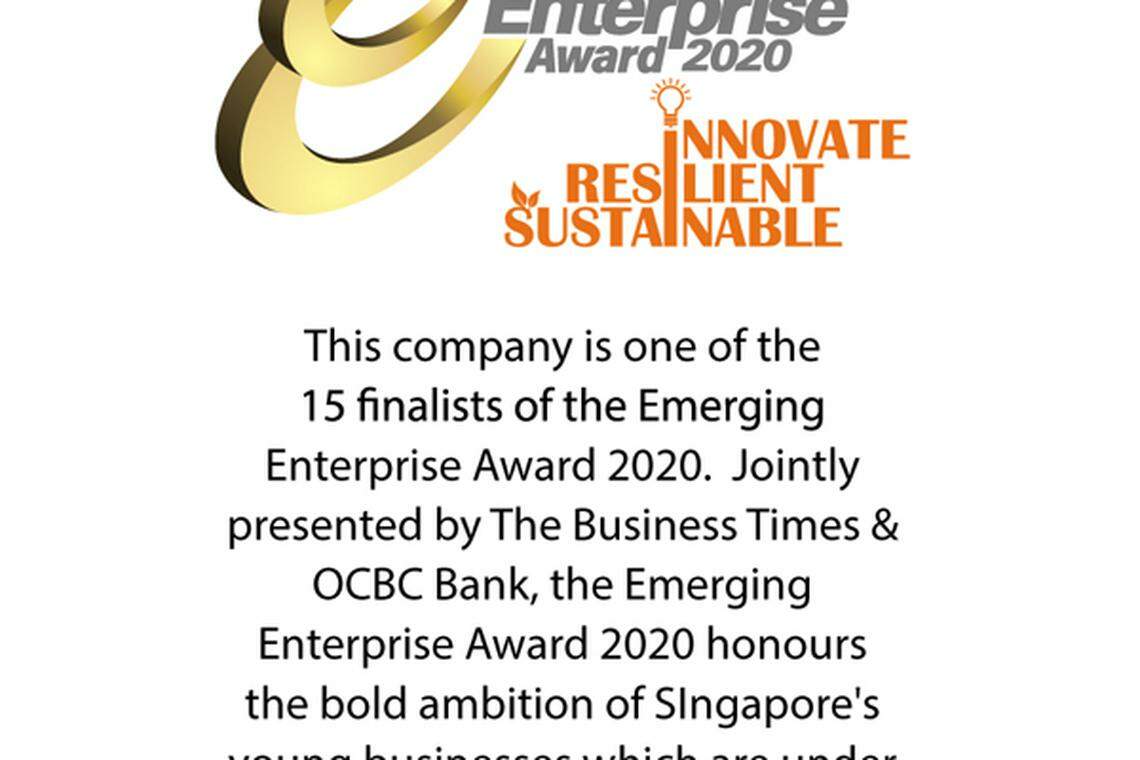Ex-private banker goes all out to battle income inequality
Get All wants to inject credit, commerce and coverage into Myanmar's non-consumer ecosystem.

Singapore
DESPITE a wide range of consumer choices in Myanmar these days, there remains a sizeable community in the South-east Asian country that is unable to enjoy what's available to them due to affordability and accessibility constraints.
Noticing this, Leon Qiu, a private banker of nine years who was managing a portfolio worth US$120 million, ditched a cushy job to found Daung Capital in 2018 - a fintech firm which offered unique credit solutions catered to Myanmar's working class.
In 2020, Daung was acquired by Myanmar digital commerce platform Get All for an undisclosed sum.
Mr Qiu, 34, says the two firms had great synergies and motivations for injecting micro-services solutions into frontier economies".
"The idea stemmed from wanting to fight inequality in all its facets. The poor do not have services catered to them, that allow them to borrow capital to start business, or access ways to earn extra income from digitalisation trends," he adds, in an interview with The Business Times.
A NEWSLETTER FOR YOU

Garage
The hottest news on all things startup and tech to kickstart your week.
Today, Get All has six products under two broad categories - micro retail and micro credit. Each one targets different demographics of the non-consumer segment in Myanmar.
Relevant demographic
One of its products, Get Now, enables existing brick-and-mortar provision shop owners and mobile phone users to instantly become a mobile digital services seller.
Another product called Get Smart allows people in Myanmar to effectively compare rates across financers to make the most optimal choice.
Get Protect enables insurers to distribute micro-insurance products, while Get Pitesan allows motorcycle dealers to offer leverage on their vehicles, enabling people to get essential basic transportation.
Get All currently has more than 18,000 provision-shop owners and agents, and also works with over 125 motorcycle dealers operating from over 250 shop fronts across Myanmar.
"We recognised that non-consumers are a relevant demographic to cater to," says Mr Qiu, the company's chief executive officer.
"We want to be in the business of creating products and services for whom either the products did not exist or were simply unaffordable or inaccessible to them."
Mr Qiu notes that Myanmar is still predominantly "cash-based" which posed some challenges for Get All as it collects all payments digitally. He adds the company had to work hard to educate its previous partners on how to conduct digital payments.
"The main strategy shift is greater investment into trying to bring our business partners up to speed in digital payment methods and digital transactions," he says.
Yet, according to Mr Qiu, Get All has been "at the forefront of technological innovation" through its day-to-day business activities and operations.
Prospective borrowers are onboarded using the Get Tablet, and a customer can fill up the entire loan application form on the tablet, allowing the loan officer to not only capture important information on the borrower but also on the asset being financed.
Get All has also done away with long and tedious physical forms that are common at loan offices.
The company's credit and risk team can immediately vet credit applications that come in through an integrated management system, which means a loan amount can be disbursed in as quickly as 24 hours.
"As the loan management system is so robust, we can view important details on borrowers, submission status, loan disbursement, monitor exposure and concentration risk, and even fraud prevention," says Mr Qiu.
Get All's systems are also built with scalability and portability, notes Mr Qiu, which allows them to be deployed in a town or remote jurisdiction to allow credit applications without "incurring huge operational costs that a traditional branch model would entail".
Get All has kept all its point-of-sale machines serviced so that essential digital items still remain available to the masses, especially those living in rural villages.
Mr Qiu says that people want to remain connected and have Internet access, and Get All remains on hand to service machines and maintains a full call centre support team despite the lower transaction volume.
Cautiously optimistic
The Covid-19 pandemic has hit businesses hard around the world and Get All has not been spared either.
Mr Qiu says the current pandemic is particularly devastating as the trickle-down effects of the global economic slowdown has had a "pervasive impact on the poor".
"A provision-shop owner may be too scared to open his provision shop, let alone have customers. A taxi driver is not allowed to drive to source for passengers if there is a town-wide lockdown."
Despite the near-term stumbles, Mr Qiu says Get All is still optimistic about the overall level of business opportunity that is available to it from the non-consumer segment.
In fact, there has been a greater push for digitalisation with the pandemic, and that has benefitted the company.
"Covid-19 has definitely propelled the firm to onboard more merchants onto the Get Digital Stall, to give provision shop owners a larger variety of inventory to sell," he shares.
Although the pandemic has affected players in the micro-retail and micro-credit spaces adversely and there remains a possibility of a second wave of infections, Get All continues to take cautious steps in terms of growth in the Myanmar market.
"We continue to be opportunistic where we can, especially in a sector servicing a largely-excluded segment that needs us more than ever," he adds.

BT is now on Telegram!
For daily updates on weekdays and specially selected content for the weekend. Subscribe to t.me/BizTimes
Companies & Markets
Netflix handily beats subscriber targets, misses on revenue forecast
Meta releases early versions of its Llama 3 AI model
Seatrium unit ordered to pay US$108 million in arbitration over equipment supply contracts
TSMC estimates losses of US$92.4 million due to Taiwan earthquake
Marina Bay Sands Q1 profit surges 51.5% to US$597 million on tourism boom
US: Wall St opens higher as some chip stocks bounce back after selloff
